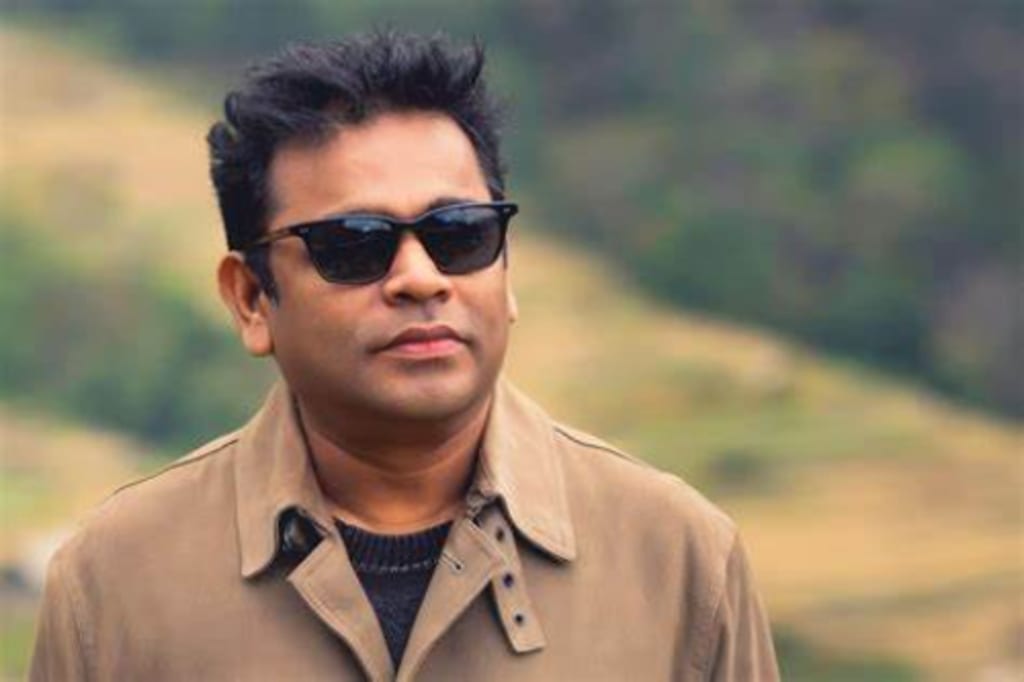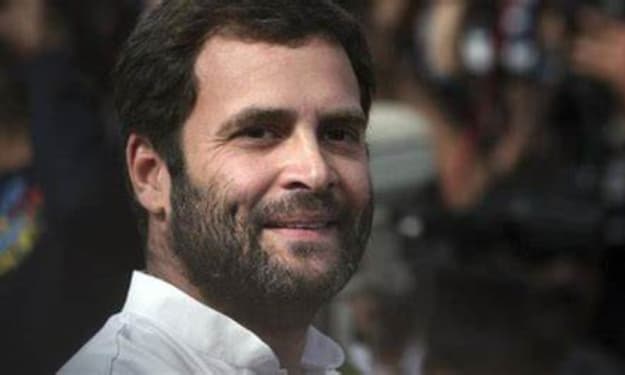AR Rahman: The Musical Maestro of India
The Life and Music of India's Maestro

"Music is a language that doesn't speak in particular words. It speaks in emotions, and if it's in the bones, it's in the bones." - AR Rahman
Childhood and Early Life
AR Rahman was born as A. S. Dileep Kumar on January 6, 1967, in Chennai, Tamil Nadu, India. He was the second youngest of nine siblings and grew up in a musical family. His father, R.K. Shekhar, was a composer and conductor for Tamil and Malayalam films, and his mother, Kareema Begum, was a housewife. Rahman was named after the legendary Tamil actor M.G. Ramachandran, whom his mother was a big fan of.
Rahman showed an interest in music from a young age and began playing the piano at the age of four. He was later introduced to the harmonium by his father and began accompanying his father to recording sessions. Rahman's father passed away when he was nine years old, leaving the family in financial distress.
Education and Early Career
Despite the family's financial difficulties, Rahman continued to pursue music. He joined the Chennai-based music troupe, Roots, as a keyboard player at the age of 11. He also began playing music for documentaries and jingles. In 1984, Rahman, then known as Dileep, joined the music troupe of the legendary composer Ilaiyaraaja. He played keyboards for Ilaiyaraaja's concerts and also assisted him in his film compositions.
In 1987, Rahman began his career as a composer with the Tamil film Roja. The film, directed by Mani Ratnam, was a huge success and Rahman's music received critical acclaim. The soundtrack of Roja was released in Tamil, Hindi, and Telugu, and went on to become a chartbuster. Rahman won his first National Film Award for Best Music Direction for Roja.
Rise to Stardom
Following the success of Roja, Rahman became one of the most sought-after composers in the Indian film industry. He composed music for several Tamil and Malayalam films, and also worked on projects in other languages, such as Hindi, Telugu, and Kannada. Rahman's music was characterized by his innovative use of Indian classical music with modern electronic sounds.
In 1995, Rahman composed the music for the Tamil film Bombay, also directed by Mani Ratnam. The film's soundtrack was a huge commercial success and earned Rahman his second National Film Award for Best Music Direction. The soundtrack of Bombay included the iconic track "Hamma Hamma", which became a chartbuster.
In 2002, Rahman composed the music for Andrew Lloyd Webber's musical Bombay Dreams, which premiered in London's West End. The musical was a critical and commercial success and earned Rahman a nomination for the Laurence Olivier Award for Best New Musical.
"Music can change the world because it can change people." - Bono
International Recognition
Rahman's music gained international recognition when he composed the score for the British film Warriors of Heaven and Earth in 2003. He also composed the score for the French film The Prince of Persia: The Sands of Time in 2010. Rahman's music was praised for its fusion of Indian classical music with Western orchestration.
In 2009, Rahman was invited to compose the music for the film Slumdog Millionaire, directed by Danny Boyle. The film's soundtrack, which included the hit song "Jai Ho", became a global phenomenon and earned Rahman two Academy Awards for Best Original Score and Best Original Song. Rahman's success with Slumdog Millionaire catapulted him to international fame and made him the first Indian composer to win two Academy Awards.
Philanthropy and Social Causes
Apart from his music career, Rahman is also involved in philanthropic activities. He founded the AR Rahman Foundation in 2010, which focuses on providing education and healthcare to underprivileged children in India. Rahman has also been associated with various charitable organizations, such as Save the Children and the KM Music Conservatory.
AR Rahman is not just a prolific composer but also a philanthropist who has been involved in several social causes. He has been associated with several charities and non-profit organizations, including the AR Rahman Foundation, which works towards improving the lives of underprivileged children in India through education, healthcare, and music.
In 2011, Rahman composed the music for the documentary film "People 1.0" which focused on the impact of the digital divide on underprivileged children in India. He also composed the music for the film "Rivers of India" which aimed to raise awareness about the importance of preserving India's rivers.
Rahman has also been involved in several concerts and events to raise funds for various causes. In 2010, he organized a concert titled "Jai Ho Concert: The Journey Home World Tour" to raise funds for the victims of the 2010 Haiti earthquake.
In addition to his philanthropic work, Rahman has also been an advocate for environmental conservation. He composed the music for the documentary film "The Harmony with AR Rahman" which focuses on the need for sustainable living and the conservation of natural resources.
Overall, Rahman's philanthropic efforts reflect his commitment to using his music for a greater cause and making a positive impact in the world.
Legacy
AR Rahman's music has had a profound impact on the Indian music industry. He has revolutionized the use of Indian classical music in contemporary music and has inspired a generation of musicians. Rahman's music has also transcended borders and has gained international recognition. He continues to be one of the most influential and celebrated musicians in India.
Conclusion:
AR Rahman is an Indian music composer, singer, and music producer, who has made significant contributions to the Indian music industry. He has won numerous awards and accolades for his music and has also been involved in philanthropic activities. Rahman's innovative use of Indian classical music with modern electronic sounds has inspired a generation of musicians and has gained international recognition. He continues to be a prominent figure in the Indian music scene and his legacy will continue to inspire generations to come.
"Music is the divine way to tell beautiful, poetic things to the heart." - Pablo Casals
About the Creator
Jano Jaison
As an article writer, my passion is to write great content.
I have honed my skills as an article writer through extensive reading and practice.
In my free time, I enjoy exploring new topics and experimenting with different writing styles.





Comments
There are no comments for this story
Be the first to respond and start the conversation.